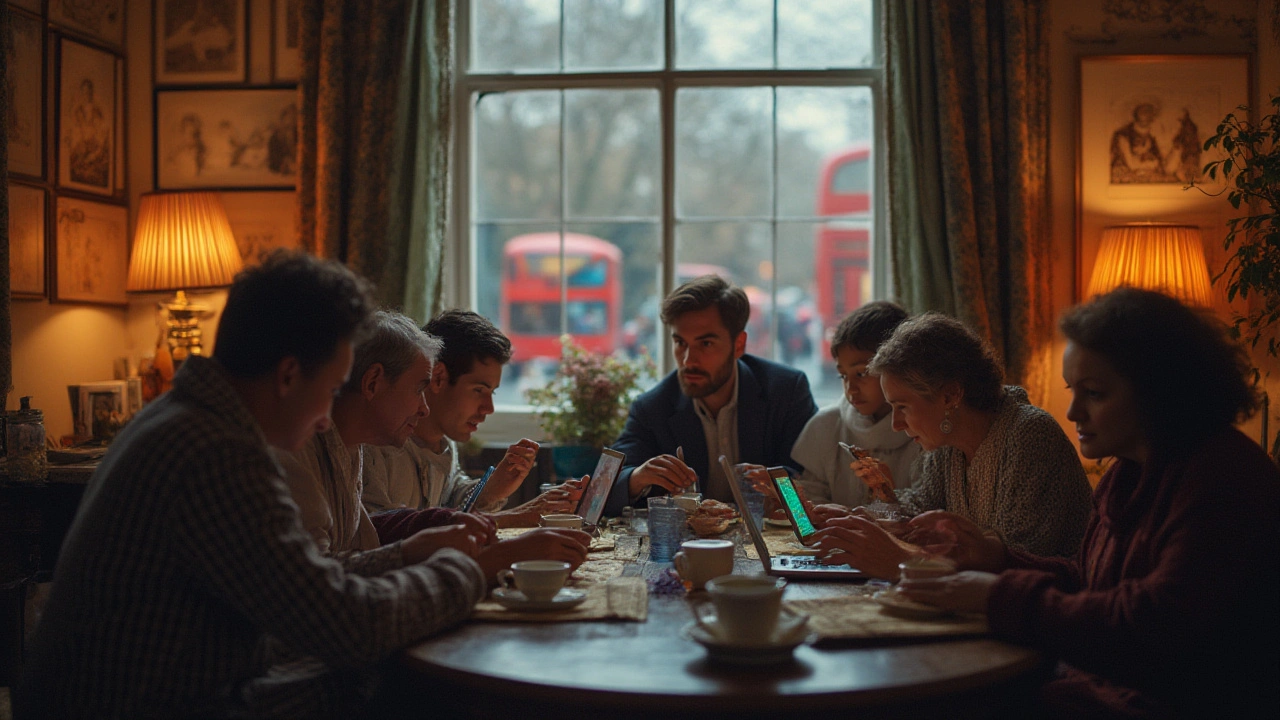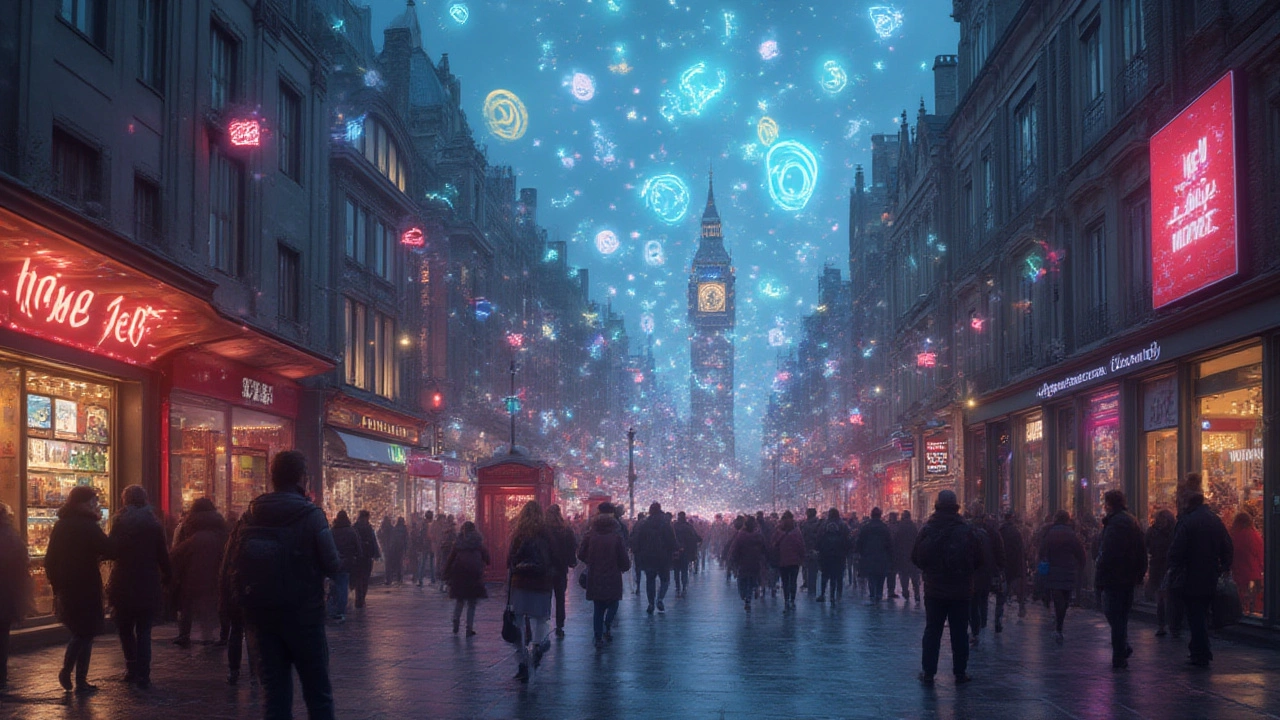
Type a single search into your phone, and up pops nearly every answer you want. For most people today, that feels normal. But pause and think for a second—only a few decades ago, that was pure science fiction. If you’re wondering, “What event changed the world forever?”—the answer might just be hiding in your pocket: the Internet.
The Internet Ignites a Global Shift
What counts as a world-shattering moment? The Internet wasn’t just an invention; it kicked off an upheaval. When the very first message zipped between two computers in California back in 1969, nobody knew it would get this massive. That moment was the birth of ARPANET—a government research project. Fast forward to today, and the number of Internet users has shot past 5 billion worldwide, according to Statista’s 2025 global figures. That’s almost two-thirds of humanity plugged in. When Tim Berners-Lee unleashed the World Wide Web in 1991, suddenly, anyone with access could join the conversation, publish their thoughts, or build a business almost overnight.
The Internet crossed borders when Cold War rivals swapped emails across the Atlantic. Then, with web browsers like Mosaic (hello, 1993), ordinary people, not just scientists, could hop online. By the late 90s, everyone was hearing “You’ve got mail!” and seeing DSL modems blink at home. You can see the growth in the table below—each year meant millions more connected.
| Year | Worldwide Internet Users (Millions) |
|---|---|
| 1995 | 16 |
| 2000 | 413 |
| 2010 | 2,000 |
| 2020 | 4,500 |
| 2025 | 5,400 |
Think about that: in one generation, we went from barely any access to nearly every village, suburb, and city being plugged into a shared universe of data. My son Silas can ask questions and get answers in seconds. My wife, Clarissa, can see her family in a different country in real time. The rules of the world have changed—no more waiting days for a letter, no more missing out because you live far away from a big city.
But this wasn’t just about speed or convenience. The Internet convinced people to dream bigger. Kids growing up now don’t just imagine becoming doctors or teachers—they see YouTubers, game developers, and digital activists as real jobs. For so many, the web created a level playing field. If you had a phone or a basic laptop, you had a shot. No more waiting to be picked by a publisher or a studio—now, self-made artists, writers, and entrepreneurs can grab attention, followers, and even funding online. It made fame and impact possible for pretty much anyone, anywhere.
Don’t forget the darker side: more screens mean more risks. Trolls, scammers, conspiracy theories, and cyberbullying came right along with TikTok dances and viral memes. Yet, like all huge leaps, the Internet’s real importance lies in how completely it’s changed our daily experience—good and bad—forever.
Everyday Life Rewired: Work, School, and Home Unrecognizable
Before the Internet, if you wanted the news, you read the paper or caught the 6 p.m. broadcast. If you needed to pay bills, you got out a chequebook. Dating meant awkward introductions at parties—or maybe answering a newspaper personal ad (my parents still tease each other about that giant phone bill from when they first started talking...).
Now, the average family juggles a dozen digital tasks before breakfast. A 2024 report from the Pew Research Center found that 93% of adults in developed economies can’t imagine a single day without Internet access. Kids do their homework through cloud-based platforms, hop on group calls to swap ideas, or share memes. Remote work—once unthinkable for most jobs—became the new normal during the COVID-19 pandemic. Millions went from “See you at the office” to “You’re on mute” overnight. It wasn’t temporary; nine out of ten UK companies said in a 2023 CIPD survey they’d keep flexible working for good.
Shopping? Click. Groceries? Tap. Booking a flight or hotel? Five minutes, done. Even when it comes to healthcare, things have changed in a big way. My wife, who used to wait days for routine appointments, now chats with her GP by video. Prescriptions show up via app, not in a paper bag. Telemedicine shot up by 38% in a single year, according to NHS Digital. It’s not just some fancy add-on anymore; it’s how we do things—especially in places that were otherwise out of reach, such as rural clinics or small global villages. The Internet brought lifesaving help where it was never possible before.
Education jumped into hyperspeed, too. When Silas needed help for his science project, he joined a virtual study group, watched YouTube explainers, even chatted with a tutor from across the world. University lectures from Harvard? Free to stream from anywhere. Teachers collaborate globally. Ideas cross oceans instantly. It’s a far cry from what my schooldays looked like, and a reminder that new skills—digital literacy, cybersecurity, even basic coding—are now essential for everyone, not just tech geeks.
But with great power comes real messiness. Sometimes you wonder if anyone’s actually that happy scrolling Instagram or if Zoom meetings are just creating different kinds of stress. Privacy means less when your smartwatch tracks every heartbeat, your smart speaker knows your playlist, and ads follow you from site to site. Parents like me have a new job: teaching our kids to spot fakes, question sources, and disconnect once in a while. Because while the Internet gave us new abilities, it also handed us an endless flood of information to sort through and worry about.

Driving Innovation: From Banking to Social Movements
Think the Internet is just about cute animal videos and doomscrolling? Not even close. Every major industry has had to either adapt or vanish. Take banking—remote branches were closing by the thousand across the UK, as banking apps and online systems let people deposit cheques, transfer cash, and get loans with a few taps. In 2025 alone, the number of physical UK banks dropped by 15%, according to Which?. But banking isn’t the only story. The Internet let microloans, crowdfunding, and digital currencies bloom. Small ideas in Estonia or India can raise funds in minutes from strangers across the world.
E-commerce made household names out of businesses that started in a garage. Remember when Amazon sold just books? Now, it’s nearly half of all online retail in the US, with over $500 billion in revenue last year. Services like Deliveroo, Etsy, Airbnb—they wouldn’t exist without the web. Same goes for gig work. Uber, TaskRabbit, Upwork—these platforms have made flexible incomes real, but they’ve also forced debates about job security, fairness, and technology’s reach into every corner of our wallets.
Look at politics and social movements. The Arab Spring of 2010-2011—millions of young people sharing injustice online, organizing protests in real time—could never have happened pre-Internet. Fast forward to Black Lives Matter or #MeToo, and you see the raw power of hashtags and viral videos. It’s become almost impossible for authorities to completely hide wrongdoings when everyone carries a camera and a connection. But this also means movements can get hijacked, real debate gets drowned out by bots, and sometimes fake stories do more harm than good. It’s a double-edged sword; more voices don’t always mean more truth.
Healthcare, transport, energy—all of it is smarter, leaner, and sometimes more dangerous, thanks to that massive digital backbone. Online medical records mean quicker treatment but raise the stakes on hacks. Smart meters bring energy efficiency but also tons of data about household habits. Even driverless cars—25% more common on roads in 2025 than just two years ago—couldn’t work without high-speed wireless and instant cloud updates. Sometimes the little ways tech shapes your day—smart locks, streaming workouts, cloud backups—hide just how deep the changes run. Pull the digital plug, and half of modern life grinds to a halt.
Here’s a nugget to chew on: in 2004, only 1% of the world’s population used social media. Now, 2025 data from Hootsuite says it’s nearly 60%. Whole generations will never know life before filters, likes, and global chats. That rewiring of how we connect, share, date, debate, and learn—that’s not going away. No single invention has made more new industries (or killed off more old ones) in so little time.
The Future Unwritten—But Forever Changed
So, is the Internet the only world-changing event? Some might argue for electricity, vaccines, or the steam engine. All major game-changers. But none has moved as fast, gone as wide, or felt as personal for so many. The world’s biggest libraries fit in your palm. Revolutions start in chat rooms. Families separated by oceans share everyday laughs on video calls. If you’re debating how the Internet changed the world, you can’t ignore how much it’s scrambled everything we know about life, work, power, and play.
The next chapter? Artificial intelligence is weaving itself into almost every part of daily life. GPT-style systems write reports, diagnose diseases, and create art. Blockchain disrupts the money system. Everyone, from musicians to truckers, feels the impact. Experts estimate that by 2030, over 80% of UK jobs will require some digital skills, and three out of four adults will spend more than half their waking hours with a screen within reach.
Are there risks ahead? Of course. As more of our lives move online, so do the threats: cybercrime, polarization, digital addiction. But pulling back isn’t really an option—the Internet’s now as basic as roads, water, or electricity. The key is learning to use it well: question what you see, protect your data, disconnect when you need to. Teach the next generation to spot deepfakes and scams, but also how to build positive online communities. Maybe, by remembering both what we gained and what we lost, we carve out a smarter, kinder path forward.
That first shaky connection in 1969 set off a supernova of progress. All these years later, it’s clear: the Internet didn’t just change the world—it gave us a new one to build, break, and maybe someday fix, if we stick together. Strange days, wild rides, and always something new a single tap away. And to think, all that started with a few beeps, cables, and a spark of human curiosity.